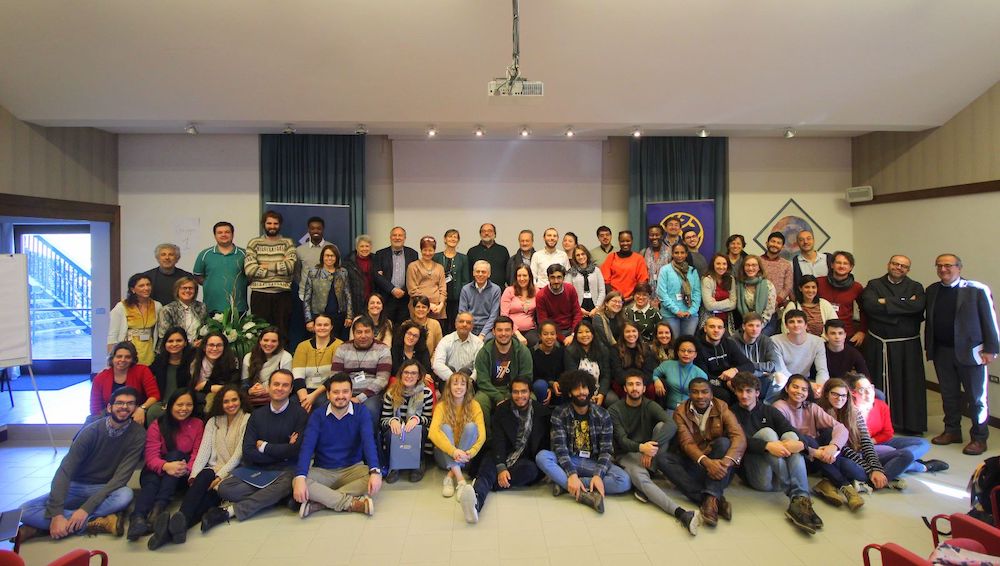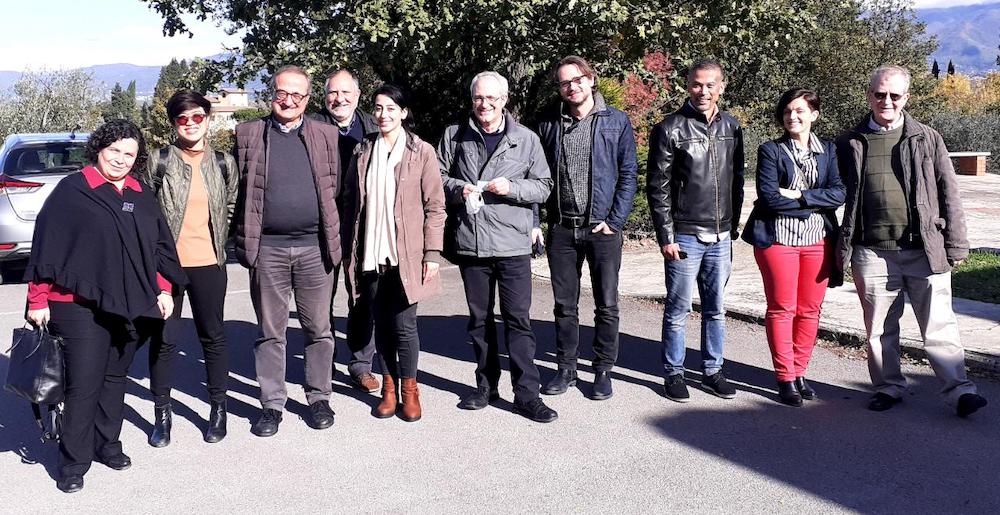The Genesis and Early Stages of the Digital Oath Project
In a few days, a meeting entitled “Towards a Digital Oath” at Sophia University in Loppiano will propose reflections from different perspectives and personalities. The first version of the Digital Oath website is now online. A possible question is: when did the Digital Oath project start? And how did you reach this point? In this article, we will try to answer these questions.
Trento. Nov 29 – Dec 1, 2019. A gathering of young engineers and communicators joined the forum entitled “Humanity 4.0. Towards the communities of the future” promoted by the Sophia Foundation, the research center Sophia Global Studies, and NetOne, with the support of the Autonomous Province of Trento.
The meeting saw prominent speakers, including the UN consultant for the digital world Fadi Chehadé, discussing various aspects of communication and society. In particular, Chehadé focused on Internet Governance, emphasizing the need for humanity to have a say in the exchange between governments and large companies on personal data use. The meeting also highlighted the importance of sensitizing engineers to ethical issues and establishing universally recognized ethical principles in the digital world.
“The time is ready: we can start working on this because engineers all over the world have already begun to say no to unethical tasks and to have a talk around these themes.” – said Chehadé. But what to do? The idea was to create a platform, a place to share doubts and opinions and work to outline an oath for engineers just as doctors have the Hippocratic Oath.

January 2020. “TOC TOC. So what do we do? When do we start to work?”
The debate in Trento awakened a feeling that was already in the participants. For this reason, a small group quickly answered the call for a reunion. The working group started to meet periodically.
February to November 2020.
It was tough to cut time from our daily life – already filled in with work, family commitments, volunteer jobs, and other activities – and the COVID time did not help. However, we believed that was an outstanding opportunity to envision a possible way to act – especially for the good that this network could have brought in terms of new research directions during and after the oath definition and implementation. At least, this was the personal feeling of the author of this article.
We were professionals from different disciplines: engineering, computer scientists, journalists, and experts in philosophy and anthropology. The first task was to envisage an effective strategy to make an oath universally known, recognized, and adopted. Since the very beginning, we understood that even if the document is to be signed by technology creators (engineers, computer scientists, and so on), professionals from several areas were needed, and each citizen could give a contribution: if not in the content redaction or the legal presentation, at least in the visibility and sensitization perspective.
From November 2020 to October 2021.
From the beginning, it was clear that a network was fundamental to sustaining the project and that – to create it – we needed to present the idea giving it a more defined shape. So we worked on the brand and the website structure and development. These were the times of the 9 pm brainstorming meeting on the communication strategy, the Wednesday lunchtime to meet for crafting the text and think about the layout of the different pages, to share our idea on the million versions of the logo that were coming up.
To tell the story, we passed through demanding times. The changing world due to the COVID pandemic was one reason. Moreover, because of the worldwide perspective, the project seemed a utopia. Who are we to propose such a thing? There were so many reasons to leave that came to our mind. Many did. After all, life has to go on. Some abandoned to focus on their thesis or on their job, some on health treatments, and some on upcoming marriage: many of the former are no longer in the current active team, but it is also for them that this project has continued.
Loppiano, Italy. November 2021. Thanks to the practical support of the Netone team, we had a meeting at Sophia University with the remote participation of Fadi Chehadé. After the meeting, the priority of the emerging roadmap was clear: defining the core proposal of the digital oath content.

Therefore, the subsequent step was: the definition of a set of ethical boundaries within which it is legitimate to operate and a set of guidelines and participation pledges to provide clear ideas on how to work positively.
November 2022.
During the route, we had some stops sometimes. However, this helped us realize – estimating the project viability – that we should find a way to guarantee some continuity. An opportunity came at the end of the year with the arrival of the funding for a Ph.D. on the Digital Oath. Marianne Najim from Lebanon will conduct the research.
April 2023.
The project has been officially submitted to the UN’s Global Digital Compact 2023, which is expected to “outline shared principles for an open, free and secure digital future for all”. The Common Agenda released by the Secretary-General in September 2021 proposes a Global Digital Compact to be agreed at the Summit of the Future in September 2024 through a technology track involving all stakeholders: governments, the United Nations system, the private sector (including tech companies), civil society, grass-roots organizations, academia, and individuals.
“Towards a Digital Oath” meeting. June 1, 2023.
The news of this meeting has aroused a lot of interest in the network of Sophia University and Netone, among the organizers of the initial forum in 2019. Four diverse panels of renowned experts will share their points of view. Here you can find the detailed program and the news of the upcoming meeting.
